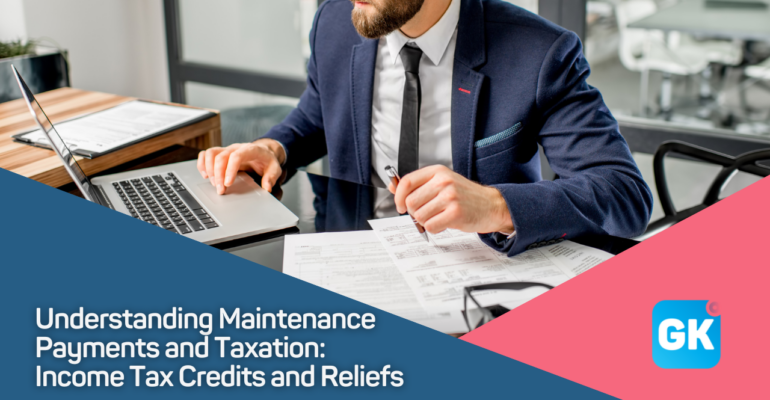Understanding Maintenance Payments and Taxation: Income Tax Credits and Reliefs

When a couple separates, they may agree that one partner will make maintenance payments to support a child or former partner. These payments can be part of a legal agreement or a voluntary arrangement between the former partners. The tax implications of these payments depend on their nature and the relationship between the parties involved. This blog post explains how maintenance payments are taxed, whether they are voluntary or legally enforceable, and how they benefit either a former partner or a child.
Types of Maintenance Payments
1. Legally Enforceable Maintenance Payments
2. Voluntary Maintenance Payments
Legally Enforceable Maintenance Payments
Legally enforceable maintenance payments are those that are made under:
- A court order
- A deed of separation
- Any other legal commitment, such as a covenant or trust
These payments can include direct monetary support as well as indirect support like mortgage payments on behalf of a former partner.
Tax Implications
- For the Payer: Payments are tax-deductible. You can claim tax relief on these payments if they are made for the benefit of your former partner. Payments for the benefit of children are not eligible for tax relief.
- For the Recipient: Payments are taxable. The recipient must pay Income Tax, Universal Social Charge (USC), and Pay Related Social Insurance (PRSI) on the received amount.
Option to be Taxed as a Married Couple
Former partners with a legally enforceable maintenance agreement can opt to be treated as a married couple for tax purposes. If both parties choose this option by writing to Revenue:
- Maintenance payments are ignored for tax purposes.
- They are assessed on the basis of separate assessments.
Voluntary Maintenance Payments
Voluntary maintenance payments are those made without a legal agreement. These are personal arrangements between former partners.
Tax Implications
- For the Payer: No income tax deduction can be claimed for voluntary maintenance payments.
- For the Recipient: Voluntary maintenance payments are not subject to Income Tax, USC, or PRSI. However, Capital Acquisitions Tax may apply if the payments exceed a certain amount.
If You Make Maintenance Payments
1. Legally Enforceable Payments: You can deduct these payments from your taxable income. Tax relief is only applicable to payments made for the benefit of your former partner, not children.
2. Voluntary Payments: No tax deduction is available. However, if the maintenance payments exceed your former partner’s income, you may claim the married person tax credit (excluding the increased standard rate band).
If You Receive Maintenance Payments
1. Legally Enforceable Payments: These payments are subject to Income Tax, USC, and PRSI unless they are specifically for children.
2. Voluntary Payments: These payments are not taxable. Nevertheless, Capital Acquisitions Tax could apply if the total amount surpasses a specified threshold.
How to Claim Tax Relief
To claim tax relief on legally enforceable maintenance payments:
- Complete the Revenue form to claim Relief for Legally Enforceable Maintenance Payments.
- For current tax year claims, an amended certificate of tax credits will be issued, and your employer will handle any refund due.
- For claims pertaining to previous tax years or periods of unemployment, Revenue will issue any refund directly, either by cheque or bank transfer.
Understanding the tax implications of maintenance payments is crucial for both payers and recipients. Legally enforceable payments offer specific tax reliefs and obligations, while voluntary payments remain largely untaxed but may have other financial considerations. By comprehending these distinctions, individuals can better navigate the financial aspects of separation and ensure compliance with tax regulations.
Contact us:
If you need expert advice on how maintenance payments impact your taxes, or if you need assistance with tax relief claims, reach out to Gallagher Keane. Our experienced team is here to help you navigate the complexities of maintenance payments and tax regulations.


